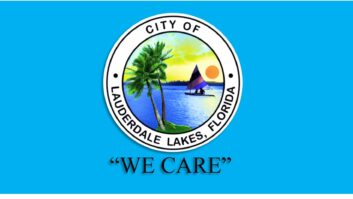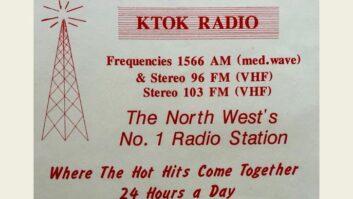A news website in Colorado has been called out by an FCC commissioner for what he called “tacit support” of a new pirate radio station reportedly operating in town boundaries.
The nonprofit Longmont Observer published his letter but added a note saying it found odd and perhaps unprecedented that an FCC commissioner would reach out to a small, independent news outlet and dictate “what story we should write, and how to write it.”
Michael O’Rielly’s letter to the editor was prompted by a commentary in the Observer titled “Longmont’s Pirate FM Radio Station,” which reported an allegedly unlicensed station being run by Green Light Radio on 106.5 MHz in that city of 92,000 outside Denver. The Observer wrote that pirate radio has a storied history in Colorado; it said Boulder Free Radio went on the air in 1999 and operated for half a decade and that another alleged pirate operation is on the air at 95.5 in Boulder. The station in Longmont has an effective radiated power “substantially over the FCC’s unlicensed limit,” the Observer had reported.
On Jan. 3, O’Rielly wrote to the Observer to register his concerns. “Pirate radio should never be romanticized or its negative impact minimized,” O’Rielly said. When one learns of a pirate station, the proper action is to alert an FCC field office to initiate an investigation, “not suggest people listen while they can,” he wrote.
O’Rielly detailed the harm he said could come from such operations, including the potential failure to facilitate an Emergency Alert System alert during an emergency. Illegal operations also are harmful because they threaten the survivability of legitimate stations operating throughout Colorado, he said.
“In today’s hypercompetitive media world, it doesn’t take much to put stations in precarious financial situations,” O’Rielly wrote. “By directly stealing advertisers or indirectly decreasing audience shares, local broadcasters are put at greater financial risk.”
The commissioner said the Observer had rightly highlighted “the extensive process that the commission must go through” when attempting to close down a pirate operation. What’s needed now, O’Rielly wrote, are additional changes to the communications statute so that the process of pulling pirate operators from the air is streamlined, and that enforcement will rope in all those who also intentionally and knowingly aid pirate operators, he said. “It would be helpful if Longmont citizens and the Observer assisted this effort by, at a minimum, refusing to listen to or support such ‘stations.’”
The Observer posted the letter and added a postscript: “We do find it odd, and by what we can tell, unprecedented, that an FCC commissioner would write a tiny digital-only locally focused news outlet in Longmont, Colorado and tell us what story we should write, and how to write it.” It cited language from the FCC’s website on censorship, notably a section that says that the FCC is “barred by law from trying to prevent the broadcast of any point of view” or from making any regulation that would “interfere with freedom of speech.” The postscript did not comment on O’Rielly’s charge that the Observer had given tacit support to an illegal act.
At least one of the Observer’s then readers chimed in, calling on Commissioner O’Rielly to “focus your energies on making nonprofit radio licenses more affordable and accessible instead. That would be the best way to alleviate the drive to create pirate radio in the first place.”
O’Rielly, a Republican appointed by President Obama to one of the FCC’s traditionally GOP seats in 2013, has been vocal about the need for vigorous enforcement against unlicensed operations that exceed legal power limits.






